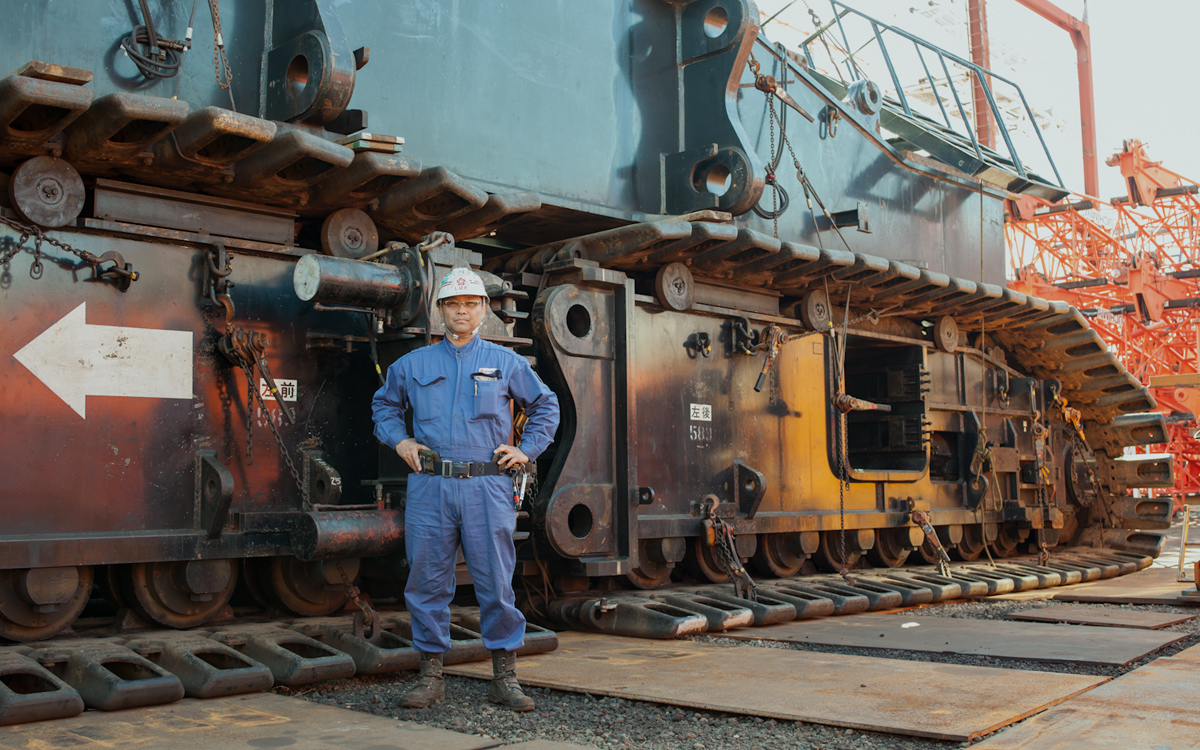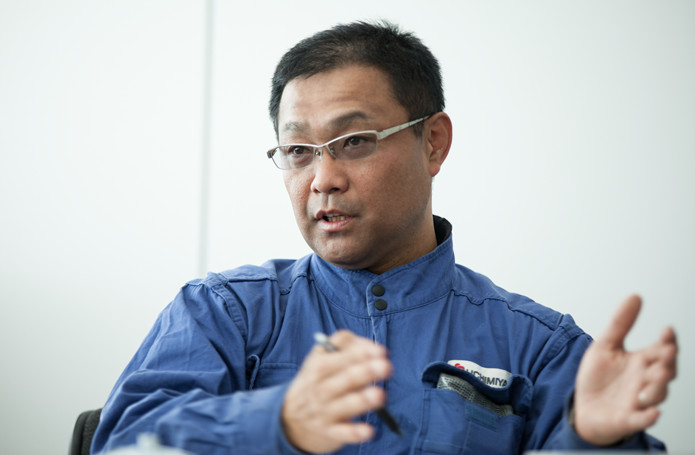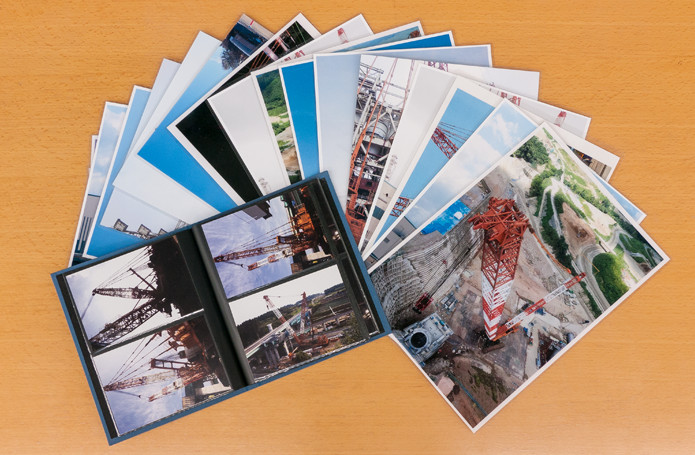
A day on site
December 2013
Cranes and those operating them
We asked the operator of a large-sized SL-13000 crane about his workday.
 Mr. Shibata
Mr. Shibata
Crane Operator
Uchimiya Transportation and Engineering Co., Ltd.
Mr. Shibata, operator
Mr. Shibata is a UCHIMIYA crane operator with 25 years of experience. He operates a large-sized Kobelco SL-13000 crane, and is also responsible for assembling and disassembling cranes. His career highlights include the bridge installation for the Metropolitan Expressway, the Isawa Dam in Iwate Prefecture, a reconstruction grant project for Higashi Matsushima City, devastated by the Great East Japan Earthquake and Tsunami, and many other very large projects. His years of service and top-notch skills have earned the respect of everyone, in the office and on site. UCHIMIYA operators are a wide range of ages because UCHIMIYA focuses on training young personnel. Mr. Shibata is well known in the industry, and a senior colleague looked up to by everyone in the company.

“I entered this industry when I was 24 years old. Before that, I was a long-haul truck driver and did some foundation construction work. On the construction jobs, I learned how to operate cranes, and began to think I’d like to take a step up in my career by concentrating on crane operation. So I went to UCHIMIYA looking for a job. By that time, UCHIMIYA had established a name in the market, and was well known—in a word, I was enamored with the company and was so happy when I was hired here. Now it’s been 25 years, and I’ve been working with cranes the whole time.”
He says he learned all about cranes at UCHIMIYA, starting with small ones and working up to the really large ones.
“I started on a 50-ton machine and gradually stepped up my skills to master the larger ones. That way let me progress faster and learn how to operate a wide variety of machines. I really appreciate how the company nurtured my skills. Large cranes lift huge loads, and small ones carry smaller loads but often move many loads, one after the other. There’s the difference in load size and weight, of course, but the operator does basically the same thing, regardless of the size of the crane he’s operating. There’s no difference. Since I’ve been operating cranes for so long, I can’t help but notice how they have developed over time. Nowadays, cranes are really good, and I can see how they are designed to make the operator’s job easier.”
 Photos recording Shibata's crane operation on various sites
Photos recording Shibata's crane operation on various sites
But people outside the industry don’t really understand cranes. Mr. Shibata told us how things worked on site.
“On site, we normally work from about 8 o’clock in the morning until about 5 o’clock in the evening. Most hours are set that way. On the other hand, work on expressways goes on in the middle of the night. That’s because they can close the road to traffic after midnight, since traffic is light during that time anyway.”
Large cranes have to be assembled before the job can start.
“When it comes to heavy equipment used on large projects, just assembling some cranes can take up to a week. And after the job’s finished, the crane must be disassembled. One of our major jobs is to see that no accidents happen during the assembly and disassembly. In fact, keeping things safe may be the most important part of what I do.”
To UCHIMIYA, and to Mr. Shibata, ensuring safety on site is the biggest issue of all. We asked Mr. Shibata, who is highly skilled, how he manages to lower the cargo suspended from the crane boom to the exact spot where it has to go.
“Part of it is maintaining an image in your mind of moving the cargo without allowing it to rock or swing. That’s something an operator learns by doing, something that becomes part of his body’s reactions and movements. Some people ask if I don’t ‘get tense,’ but personally, excess tension is not a problem. In fact, maybe I can’t understand why any operator would get tense (laughter). I think doing things right is just an expected part of the job.”
When doing a complicated job, it’s very important not to lose cool and make the wrong judgments. This is something all the people at UCHIMIYA, including Mr. Shibata, always keep in mind.